Edgar F. Codd Innovations Award
The SIGMOD Awards Committee has selected Beng Chin Ooi as the recipient of the 2020 ACM SIGMOD Edgar F. Codd Innovations Award for his innovative research and for devising and deploying innovative large-scale systems to manage and analyze data. The award recognizes both his groundbreaking research and his success in building end-to-end solutions, from data cleaning, through data curation with human-in-loop (crowdsourcing) and big data processing, all the way to complex (machine learning and deep learning based) data analytics.
 Beng Chin is a Distinguished Professor of Computer Science, and Director of Smart Systems Institute (SSI@NUS) at the National University of Singapore (NUS). He is an adjunct Chang Jiang Professor at Zhejiang University, and Director of NUS AI Innovation and Commercialization Centre at Suzhou, China. He had served as Dean of School of Computing, NUS (2007-2013). He obtained his BSc (1st Class Honors) and PhD from Monash University, Australia, in 1985 and 1989 respectively. Beng Chin is a fellow of the ACM (2011), IEEE (2009), and Singapore National Academy of Science (SNAS) (2016).
Beng Chin is a Distinguished Professor of Computer Science, and Director of Smart Systems Institute (SSI@NUS) at the National University of Singapore (NUS). He is an adjunct Chang Jiang Professor at Zhejiang University, and Director of NUS AI Innovation and Commercialization Centre at Suzhou, China. He had served as Dean of School of Computing, NUS (2007-2013). He obtained his BSc (1st Class Honors) and PhD from Monash University, Australia, in 1985 and 1989 respectively. Beng Chin is a fellow of the ACM (2011), IEEE (2009), and Singapore National Academy of Science (SNAS) (2016).
Beng Chin's research interests include database systems, distributed and decentralized systems, machine learning and large scale analytics, in the aspects of system architectures, performance issues, security, accuracy and correctness. He works closely with the industry (eg. National University Hospital, JurongHealth Hospital, Tan Tock Seng Hospital, Singapore General Hospital, KK Hospital etc. on healthcare analytics and 3H prevention, and banks and investment firms on financial analytics). He has been building large scale data systems for supporting advanced analytics and has released a number of them as open sources, which include Apache SINGA, a distributed deep learning platform that has been designed based on the principles of scalability, efficiency, elasticity and usability.
Beng Chin was the recipient of ACM SIGMOD 2009 Contributions award, a co-winner of the 2011 Singapore President's Science Award, the recipient of 2012 IEEE Computer Society Kanai award, 2013 NUS Outstanding Researcher Award, 2014 IEEE TCDE CSEE Impact Award, and 2016 China Computer Federation (CCF) Overseas Outstanding Contributions Award.
Beng Chin is serving as a non-executive and independent director of ComfortDelgro, a multi-national land transport company listed on SGX. He co-founded GeoFoto (renamed as Thothe in 2002) to provide photo sharing, social networking, and end-to-end photo printing in 1999. He is also a co-founder of yzBigData (2012) for Big Data Management and analytics, and Shentilium Technologies (2016) for AI- and data-driven Financial data analytics, Hangzhou MZH Technologies on healthcare, and MediLot Technologies (2018) on blockchain based healthcare data management and analytics.
Beng Chin had served as a Vice PC Chair for ICDE'00,04,06, PC Co-Chair for SSD'93 and DASFAA'05, PC Chair for ACM SIGMOD'07, Core DB PC Chair for VLDB'08, and PC Co-Chair for IEEE ICDE'12, IEEE Big Data'15, BOSS'18, IEEE ICDE'18 and VLDB'19 Industry Track. He is serving as a PC Co-Chair of ACM SoCC'20.
He was Editor-in-Chief of IEEE Transactions on Knowledge and Data Engineering (TKDE)(2009-2012), and Elsevier's founding co-Editor-in-Chief of Journal of Big Data Research (2013-2015). He is serving as an associate editor of IEEE Transactions on Cloud Computing (TCC) and Communications of ACM (CACM), and the founding Editor-in-Chief of ACM/IMS Transactions on Data Science.
He had served as Co-Chair of the ACM SIGMOD Jim Gray Best Thesis Award committee (2008-2011), a Trustee of VLDB Endowment 2006-2017, as its Secretary 2010-2013, and President 2014-2017, and as an Advisory Board Member of ACM SIGMOD. He is servicing as an overseas Council Member of China Computer Federation.
Test-of-Time Award
SIGMOD Test-of-Time Award for 2020 goes to "Pregel: A System for Large-Scale Graph Processing" by Grzegorz Malewicz, Matthew H. Austern, Aart J.C. Bik, James C. Dehnert, Ilan Horn, Naty Leiser, and Grzegorz Czajkowski, Pregel is one of the first systems for large-scale graph analytics. It introduced vertex-centric bulk-synchronous processing as programming and computation models for graph analytics. It has generated significant follow-on research that both optimized its computation model and developed alternatives. The paper now has more than 3700 citations on Google Scholar and has become standard reading in graph analytics.
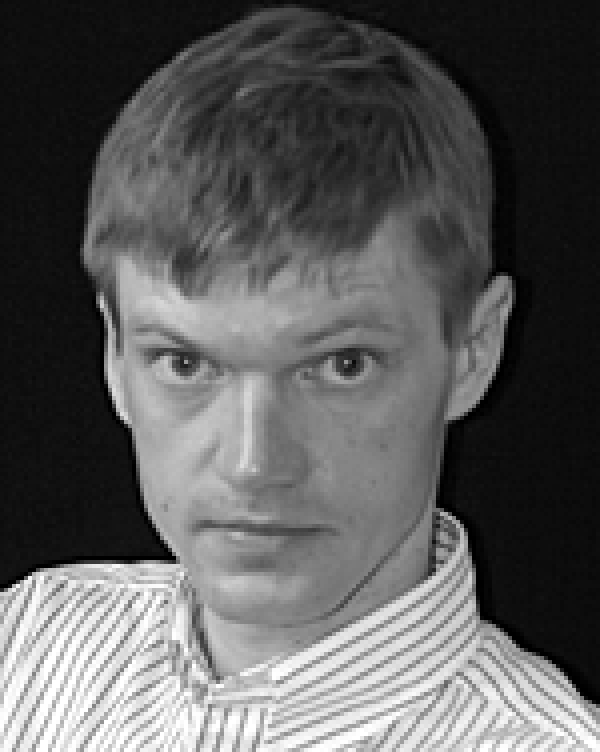 Dr. Greg Malewicz founded findhome.ai - world's first deep search engine of real estate market based on commute duration (PCT/US2019/017909). He was an engineer at Google and Facebook, where he built graph computing systems. Before Silicon Valley, he was an assistant professor of theoretical computer science in Alabama. Greg authored dozens of scientific papers and patents, including a singly-authored paper that solves a decade-old parallel computing problem (SICOMP'05). He became a US Citizen through the Outstanding Researcher category of first preference. Greg holds BA and MS degrees from UWarsaw, and a PhD degree from UConn with his last year at MIT. Greg visited hundreds of UNESCO World Heritage Sites, and cycled an 18,000ft Himalayan pass.
Dr. Greg Malewicz founded findhome.ai - world's first deep search engine of real estate market based on commute duration (PCT/US2019/017909). He was an engineer at Google and Facebook, where he built graph computing systems. Before Silicon Valley, he was an assistant professor of theoretical computer science in Alabama. Greg authored dozens of scientific papers and patents, including a singly-authored paper that solves a decade-old parallel computing problem (SICOMP'05). He became a US Citizen through the Outstanding Researcher category of first preference. Greg holds BA and MS degrees from UWarsaw, and a PhD degree from UConn with his last year at MIT. Greg visited hundreds of UNESCO World Heritage Sites, and cycled an 18,000ft Himalayan pass.
 Matthew Austern is Principal Software Engineer at Google, where his focus is large scale distributed computation. He completed an SB from MIT and a PhD in physics from UC Berkeley, and has subsequently worked at SGI, AT&T Research, and Apple. Matt has also published on generic programming, and contributed to the development of the C++ language and the Standard Template Library. He is currently technical lead for Google's event logging data warehouse.
Matthew Austern is Principal Software Engineer at Google, where his focus is large scale distributed computation. He completed an SB from MIT and a PhD in physics from UC Berkeley, and has subsequently worked at SGI, AT&T Research, and Apple. Matt has also published on generic programming, and contributed to the development of the C++ language and the Standard Template Library. He is currently technical lead for Google's event logging data warehouse.
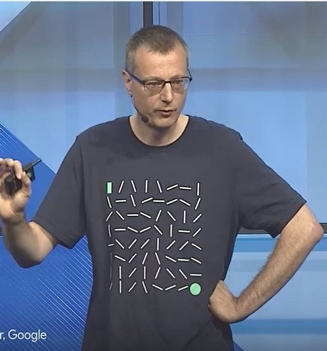 Aart J.C. Bik received his MS degree in computer science (cum laude) from the Utrecht University in 1992 and his PhD degree from the Leiden University in 1996. As a Principal Engineer at Intel, he was the lead compiler architect of automatic vectorization in the Intel C++/Fortran compilers. In 2002, Aart received the Intel Achievement Award (highest company award) for making SSE easy to use through automatic vectorization. In 2007, Aart moved to Google, where he has worked on Pregel, a distributed system for large-scale graph computations, on Google Glass, and on optimizing compilers for the Android Runtime and the Dart VM. He is currently working in Google Brain on MLIR and LLVM.
Aart J.C. Bik received his MS degree in computer science (cum laude) from the Utrecht University in 1992 and his PhD degree from the Leiden University in 1996. As a Principal Engineer at Intel, he was the lead compiler architect of automatic vectorization in the Intel C++/Fortran compilers. In 2002, Aart received the Intel Achievement Award (highest company award) for making SSE easy to use through automatic vectorization. In 2007, Aart moved to Google, where he has worked on Pregel, a distributed system for large-scale graph computations, on Google Glass, and on optimizing compilers for the Android Runtime and the Dart VM. He is currently working in Google Brain on MLIR and LLVM.
 Jim Dehnert received his Ph.D. in Applied Mathematics from U.C. Berkeley in 1983, advised by Susan L. Graham. After graduation, he worked primarily on compiler code generation and optimization for a series of companies, including teams doing an early Ada compiler at ROLM, the first commercial software pipeline code generator at Cydrome, the MIPSpro 64-bit compilers at SGI, and the Code-Morphing System at Transmeta. At Google, he worked on Pregel, cloud computing, and new architectures. He is now retired, and happy that birding provides a good reason to be outdoors hiking on a regular basis.
Jim Dehnert received his Ph.D. in Applied Mathematics from U.C. Berkeley in 1983, advised by Susan L. Graham. After graduation, he worked primarily on compiler code generation and optimization for a series of companies, including teams doing an early Ada compiler at ROLM, the first commercial software pipeline code generator at Cydrome, the MIPSpro 64-bit compilers at SGI, and the Code-Morphing System at Transmeta. At Google, he worked on Pregel, cloud computing, and new architectures. He is now retired, and happy that birding provides a good reason to be outdoors hiking on a regular basis.
 Ilan Horn received his M.Sc. in Computer Science from the Hebrew University in Jerusalem, Israel. Spent over 20 years as a software Engineer, from Start-up companies all the way to Google, developing and researching infrastructure. Left the field to become a wildlife Photographer a few years ago, hoping to spark interest in the preservation of our fragile environment by showing its beauty through my photos.
Ilan Horn received his M.Sc. in Computer Science from the Hebrew University in Jerusalem, Israel. Spent over 20 years as a software Engineer, from Start-up companies all the way to Google, developing and researching infrastructure. Left the field to become a wildlife Photographer a few years ago, hoping to spark interest in the preservation of our fragile environment by showing its beauty through my photos.
 Grzegorz Czajkowski is the SVP of Engineering at Snowflake Inc., responsible for the development of Snowflake's cutting edge cloud data platform. Prior to Snowflake, Grzegorz worked at Google. He began as an engineer on cluster management, and left as VP of Engineering, leading the development of data analytics services for internal Google needs as well as for cloud customers. His first job was with Sun Microsystems, where he worked on various aspects of the Java Virtual Machine, and received the ACM OOPSLA ten year award for a paper on the Multi-Tasking Virtual Machine. Grzegorz holds a Ph.D. from Cornell University and M.Sc. from AGH (Krakow, Poland), both in Computer Science.
Grzegorz Czajkowski is the SVP of Engineering at Snowflake Inc., responsible for the development of Snowflake's cutting edge cloud data platform. Prior to Snowflake, Grzegorz worked at Google. He began as an engineer on cluster management, and left as VP of Engineering, leading the development of data analytics services for internal Google needs as well as for cloud customers. His first job was with Sun Microsystems, where he worked on various aspects of the Java Virtual Machine, and received the ACM OOPSLA ten year award for a paper on the Multi-Tasking Virtual Machine. Grzegorz holds a Ph.D. from Cornell University and M.Sc. from AGH (Krakow, Poland), both in Computer Science.
Contributions Award
SIGMOD 2020 Contributions Award recognizes the innovative work in the data management community to encourage scientific reproducibility of our publications. Reproducibility was introduced at the 2008 SIGMOD Conference and since then has influenced how the community approaches experimental evaluation. It has also influenced similar efforts within ACM. The Contributions Award recognizes this effort in the person of the colleagues who led this effort within SIGMOD (in alphabetical order): Philippe Bonnet, Juliana Freire, Stratos Idreos, Stefan Manegold, Ioana Manolescu, and Dennis Shasha.
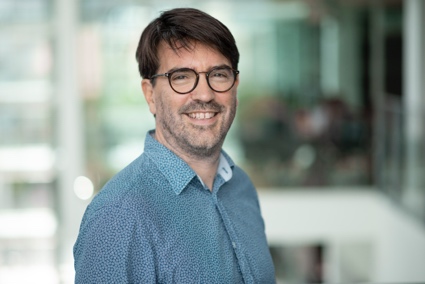 Philippe Bonnet is professor in the Department of Computer Science at the IT University of Copenhagen, where he heads the Data-Intensive Systems and Application research group. Philippe is an experimental computer scientist with a background in database management. For twenty years, he has explored the design, implementation and evaluation of database and storage systems in the context of successive generations of computer classes, in particular wireless sensor networks, cloud computing and most recently high-performance computing. Philippe is currently a trustee of the VLDB endowment and vice-chair of the ACM EIG on reproducibility and replicability.
Philippe Bonnet is professor in the Department of Computer Science at the IT University of Copenhagen, where he heads the Data-Intensive Systems and Application research group. Philippe is an experimental computer scientist with a background in database management. For twenty years, he has explored the design, implementation and evaluation of database and storage systems in the context of successive generations of computer classes, in particular wireless sensor networks, cloud computing and most recently high-performance computing. Philippe is currently a trustee of the VLDB endowment and vice-chair of the ACM EIG on reproducibility and replicability.
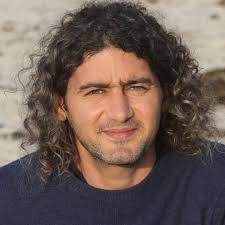 Stratos Idreos is an associate professor of Computer Science at Harvard University where he leads the Data Systems Laboratory. His research focuses on making it easy and even automatic to design workload and hardware conscious data structures and data systems with applications on relational, NoSQL, and broad data science and data exploration problems. Stratos was awarded the 2011 ACM SIGMOD Jim Gray Doctoral Dissertation award for his thesis on adaptive indexing and the 2015 IEEE TCDE Rising Star Award from the IEEE Technical Committee on Data Engineering for his work on adaptive data systems.
Stratos Idreos is an associate professor of Computer Science at Harvard University where he leads the Data Systems Laboratory. His research focuses on making it easy and even automatic to design workload and hardware conscious data structures and data systems with applications on relational, NoSQL, and broad data science and data exploration problems. Stratos was awarded the 2011 ACM SIGMOD Jim Gray Doctoral Dissertation award for his thesis on adaptive indexing and the 2015 IEEE TCDE Rising Star Award from the IEEE Technical Committee on Data Engineering for his work on adaptive data systems.
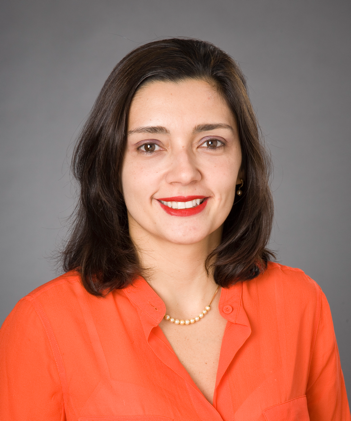 Juliana Freire is a Professor of Computer Science and Data Science at New York University. She is the elected chair of the ACM Special Interest Group on Management of Data (SIGMOD) and a council member of the Computing Research Association's Computing Community Consortium (CCC). She was the lead investigator and executive director of the NYU Moore-Sloan Data Science Environment. Her research interests are in large-scale data analysis, curation and integration, visualization, provenance management, and web information discovery. She has made fundamental contributions to data management methods and tools that address problems introduced by emerging applications including urban analytics and computational reproducibility. Freire has published over 200 technical papers (including 8 award-winning papers), several open-source systems, and is an inventor of 12 U.S. patents. She is an ACM Fellow and a recipient of an NSF CAREER, two IBM Faculty awards, and a Google Faculty Research award. Her research has been funded by the National Science Foundation, DARPA, Department of Energy, National Institutes of Health, Sloan Foundation, Gordon and Betty Moore Foundation, W. M. Keck Foundation, Google, Amazon, AT&T Research, Microsoft Research, Yahoo! and IBM. She received M.Sc. and Ph.D. degrees in computer science from the State University of New York at Stony Brook.
Juliana Freire is a Professor of Computer Science and Data Science at New York University. She is the elected chair of the ACM Special Interest Group on Management of Data (SIGMOD) and a council member of the Computing Research Association's Computing Community Consortium (CCC). She was the lead investigator and executive director of the NYU Moore-Sloan Data Science Environment. Her research interests are in large-scale data analysis, curation and integration, visualization, provenance management, and web information discovery. She has made fundamental contributions to data management methods and tools that address problems introduced by emerging applications including urban analytics and computational reproducibility. Freire has published over 200 technical papers (including 8 award-winning papers), several open-source systems, and is an inventor of 12 U.S. patents. She is an ACM Fellow and a recipient of an NSF CAREER, two IBM Faculty awards, and a Google Faculty Research award. Her research has been funded by the National Science Foundation, DARPA, Department of Energy, National Institutes of Health, Sloan Foundation, Gordon and Betty Moore Foundation, W. M. Keck Foundation, Google, Amazon, AT&T Research, Microsoft Research, Yahoo! and IBM. She received M.Sc. and Ph.D. degrees in computer science from the State University of New York at Stony Brook.
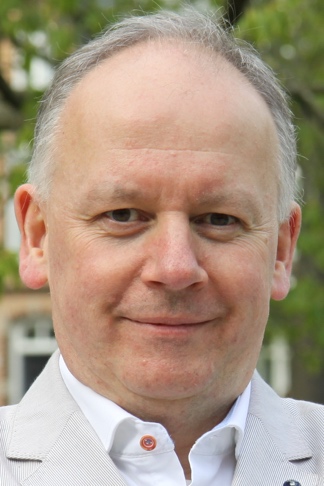 Stefan Manegold is a senior researcher and group leader of the Database Architectures (DA) research group at Centrum Wiskunde & Informatica (CWI), the national research institute for mathematics and computer science in Amsterdam, The Netherlands, and a professor for Data Management at Leiden Institute of Advanced Computer Science (LIACS), Leiden University, Leiden, The Netherlands.
Stefan Manegold is a senior researcher and group leader of the Database Architectures (DA) research group at Centrum Wiskunde & Informatica (CWI), the national research institute for mathematics and computer science in Amsterdam, The Netherlands, and a professor for Data Management at Leiden Institute of Advanced Computer Science (LIACS), Leiden University, Leiden, The Netherlands.
Stefan Manegold holds a Ph.D. in Computer Science, from the University of Amsterdam (UvA), Amsterdam, The Netherlands, and a M.Sc. (Diplom) in Computer Science (Informatik) from the Technical University Clausthal, Clausthal-Zellerfeld, Germany.
Stefan Manegold has won the VLDB 2009 10-year Best Paper Award (with co-authors Peter Boncz and Martin Kersten) as well as the VLDB 2011 Challenges & Visions Track Best Paper Award (with co-authors Martin Kersten, Stratos Idreos and Erietta Liarou).
Stefan Manegold is a core member of the MonetDB developers team, co-founder of MonetDB B.V., and co-founder and steering committee member of the Data Management on Modern Hardware (DaMoN) workshop series (co-located with ACM SIGMOD since 2005).
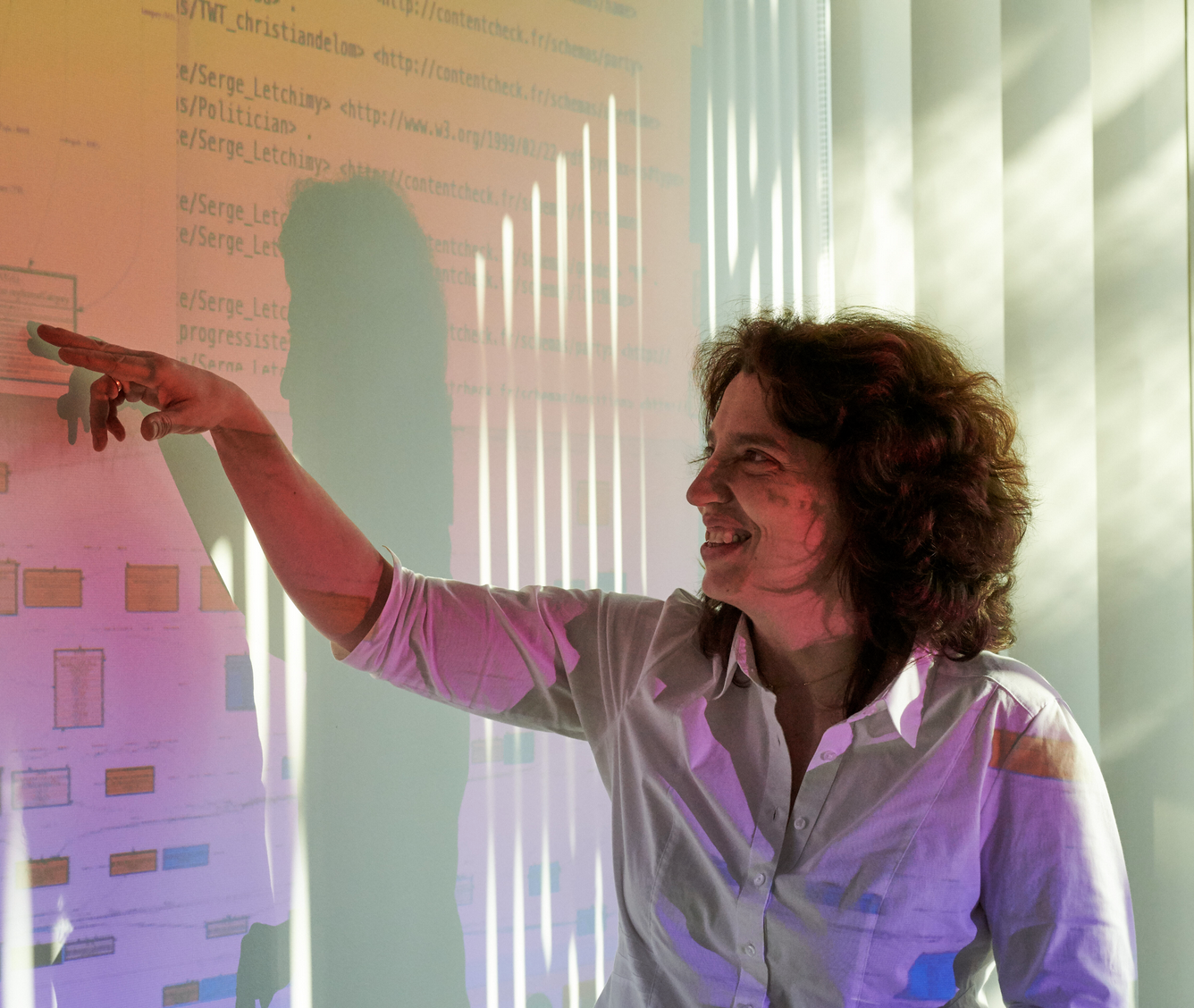 Ioana Manolescu is a senior researcher at Inria and a part-time professor at Ecole Polytechnique, France. She is the lead of the CEDAR team, focusing on rich data analytics at cloud scale. She is a member of the PVLDB Endowment Board of Trustees, and has been recently an Associate Editor for PVLDB, a president of the ACM SIGMOD PhD Award Committee, and a chair of the IEEE ICDE conference; she has been the first ACM SIGMOD Reproducibility Chair in 2008, and a co-chair in 2009 and 2010. She has co-authored more than 150 articles in international journals and conferences, and co-authored books on "Web Data Management" and "Cloud-based RDF Data Management". Her main research interests algebraic and storage optimizations for semistructured data and in particular data models for the Semantic Web, heterogeneous data integration for data journalism, data models and algorithms for fact-checking, and distributed architectures for complex large data.
Ioana Manolescu is a senior researcher at Inria and a part-time professor at Ecole Polytechnique, France. She is the lead of the CEDAR team, focusing on rich data analytics at cloud scale. She is a member of the PVLDB Endowment Board of Trustees, and has been recently an Associate Editor for PVLDB, a president of the ACM SIGMOD PhD Award Committee, and a chair of the IEEE ICDE conference; she has been the first ACM SIGMOD Reproducibility Chair in 2008, and a co-chair in 2009 and 2010. She has co-authored more than 150 articles in international journals and conferences, and co-authored books on "Web Data Management" and "Cloud-based RDF Data Management". Her main research interests algebraic and storage optimizations for semistructured data and in particular data models for the Semantic Web, heterogeneous data integration for data journalism, data models and algorithms for fact-checking, and distributed architectures for complex large data.
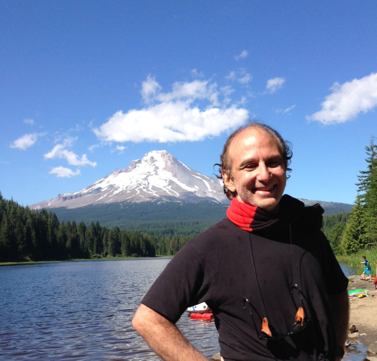 Dennis Shasha is a Julius Silver Professor of computer science at the Courant Institute of New York University and an Associate Director of NYU Wireless. He works on meta algorithms for machine learning to achieve guaranteed correctness rates, with biologists on pattern discovery for network inference; with computational chemists on algorithms for protein design; with physicists and financial people on algorithms for time series; on clocked computation for DNA computing; and on computational reproducibility. Other areas of interest include database tuning as well as tree and graph matching. Because he likes to type, he has written six books of puzzles about a mathematical detective named Dr. Ecco, a biography about great computer scientists, and a book about the future of computing. He has also written five technical books about database tuning, biological pattern recognition, time series, DNA computing, resampling statistics, and causal inference in molecular networks. He has co-authored over 85 journal papers, 80 conference papers, and 25 patents. He has written the puzzle column for various publications including Scientific American, Dr. Dobb's Journal, and currently the Communications of the ACM. He is a fellow of the ACM and an INRIA International Chair.
Dennis Shasha is a Julius Silver Professor of computer science at the Courant Institute of New York University and an Associate Director of NYU Wireless. He works on meta algorithms for machine learning to achieve guaranteed correctness rates, with biologists on pattern discovery for network inference; with computational chemists on algorithms for protein design; with physicists and financial people on algorithms for time series; on clocked computation for DNA computing; and on computational reproducibility. Other areas of interest include database tuning as well as tree and graph matching. Because he likes to type, he has written six books of puzzles about a mathematical detective named Dr. Ecco, a biography about great computer scientists, and a book about the future of computing. He has also written five technical books about database tuning, biological pattern recognition, time series, DNA computing, resampling statistics, and causal inference in molecular networks. He has co-authored over 85 journal papers, 80 conference papers, and 25 patents. He has written the puzzle column for various publications including Scientific American, Dr. Dobb's Journal, and currently the Communications of the ACM. He is a fellow of the ACM and an INRIA International Chair.
SIGMOD Systems Award
The creators of BerkeleyDB are the recipients of the 2020 SIGMOD Systems Award for their seminal work in embodying simplicity, quality, and elegance in a high-performance key-value store that has impacted many systems and applications over the last 25 years. BerkeleyDB contributors are (in alphabetical order): Don Anderson, Keith Bostic, Alan Bram, Greg Burd, Michael Cahill, Ron Cohen, Alex Gorrod, George Feinberg, Mark Hayes, Charles Lamb, Linda Lee, Susan LoVerso, John Merrells, Mike Olson, Carol Sandstrom, Steve Sarette, David Schacter, David Segleau, Margo Seltzer, Mike Ubell.
Don Anderson started his professional career doing kernel work with Bell Laboratories in 1979. Then he worked for over 25 years as an independent consultant for a variety of clients, specializing in UNIX and its variants, compilers, linkers and loaders. He worked with Sleepycat Software from 1997 until they were acquired by Oracle in 2006, and continued consulting with their clients around the world, helping to build great products using Berkeley DB. He now works for MongoDB on the Storage Engines team. He also has a parallel career as a professional jazz trumpet player.
Keith Bostic is a principal developer and co-architect of the WiredTiger storage engine, at MongoDB Inc. Mr. Bostic was the architect and one of the original developers of Berkeley DB, the most widely-used embedded data management software in the world. He co-founded Sleepycat Software, acquired by Oracle Corp, and WiredTiger, Inc., acquired by MongoDB. Mr. Bostic was one of the principal architects of the University of California, Berkeley, 4.4BSD and 4.4BSD-Lite releases, and the architect of the 2.10BSD release as well as the co-designer and implementor the 4.4BSD log-structured file system and the implementor of the widely used editor, nvi.
Alan Bram is a software engineer at Google, where he has worked on search systems specialized for private corpora. His earlier areas of experience include high-availability distributed databases, and custom data communication protocols. He holds a BS in Electrical Engineering from Cornell.
Gregory Scott Burd is a veteran software engineer with a focus on data storage and distributed systems. Greg has had the distinct honor to have worked within innovative teams and learned from outstanding people at many truly amazing companies including NeXT Computer, Sun Microsystems, Sleepycat Software, Oracle, Basho, Amazon/AWS, and Akamai Technologies to name a few. As a father of four wonderful children and husband to Professor Francesca Gino of Harvard Business School, he spends his spare time in service of or relaxing with the family.
Dr Michael Cahill was a Berkeley DB developer at Sleepycat Software and Oracle, responsible for the design and implementation of multi-version concurrency control. While working on Berkeley DB, he completed a PhD at the University of Sydney in the area of transaction processing and concurrency control. His work on a new algorithm for implementing serializable isolation received the CORE Australasian Distinguished Dissertation Award, an SIGMOD Best Paper award, a SIGMOD Test of Time Award in 2018 and was added to PostgreSQL 9.1. He is now VP Labs at MongoDB after WiredTiger, the startup he co-founded with Keith Bostic, was acquired in 2015.
Ron Cohen has always worked, studied, and been obsessed with database management systems. He worked in support and development on an inverted file DBMS written in IBM assembler language (Model 204). He was an application programmer for a variety of relational systems including SQL Server. Starting with Berkeley DB (BDB), his work has been in open source software with a focus on performance, tuning and reliability. Ron also worked as a solution architect with Apache Cassandra and DataStax Enterprise. His goal is always to help users apply technology to meet their business requirements.
Alex Gorrod is Director of Engineering at MongoDB leading the storage engines group. He was the third employee of WiredTiger building out a new storage engine designed for modern hardware where he implemented many new features, including an LSM tree implementation. Prior to that, he worked on Berkeley DB first with Sleepycat Software and then with Oracle Corp., reimplementing the hash access method and optimizing Berkeley DB for deployment on mobile devices.
George Feinberg is a Consulting MTS with Oracle working on the Oracle NoSQL Database. He's interested in distributed systems and data storage, and enjoys solving real-world problems by focusing on simplicity of design and the user experience. While with Sleepycat Software he helped Berkeley DB XML evolve into a mature embedded XML database product. At Oracle he is responsible for the table model of Oracle NoSQL Database and the API experience. While not working he can be found paddling a river, skiing a mountain, or enjoying a remote wilderness experience.
After working on desktop software early in his career and then transitioning to web applications in the 90's, in 2003 Mark Hayes found a home at Sleepycat Software working on something truly interesting and extremely challenging: a database storage engine. He contributed to the Java APIs for Berkeley DB and helped with the early versions of Berkeley DB Java Edition. He has continued enhancing BDB JE until today at Oracle, where it is used as the foundation of Oracle NoSQL Database.
Charles Lamb is a Director at Oracle where he is the Service Owner for the Oracle NoSQL Database Cloud service. He has worked in the database industry for Computer Corporation of America, Symbolics, Object Design, Sun Microsystems, Sleepycat Software, and most recently Oracle. At Sleepycat he helped develop Berkeley DB Java Edition. He holds S.B. and S.M. degrees in Computer Science from MIT.
Linda Lee joined Sleepycat Software after stints doing everything from logic design, e-marketing software, and storage systems. At Sleepycat she was one of the initial team who designed Berkeley DB Java Edition. She went on to Oracle to build Oracle NoSQL Database on top of the BDB Java Edition storage engine, and has now released Oracle NoSQL Cloud Service. After 3 decades as a software professional, Linda Lee joined Sleepycat Software after stints doing everything from logic design, e-marketing software, and storage systems. At Sleepycat she was one of the initial team who designed Berkeley DB Java Edition. She went on to Oracle to build Oracle NoSQL Database on top of the BDB Java Edition storage engine, and has now released Oracle NoSQL Cloud Service. After 3 decades as a software professional, Linda's most valuable skill is the ability to ask the right questions and make sure that they are answered thoroughly and thoughtfully.
At Sleepycat Software, Susan LoVerso led engineering on Berkley DB's high-availability product. She was also the primary engineer adding encryption support to Berkeley DB and porting the library to embedded systems including VxWorks and QNX. Working on database storage engines was a natural step for Susan after more than a decade working on Unix file system internals. She has followed this passion into her current role as a senior staff engineer at MongoDB, leading development on the WiredTiger storage engine.
John Merrells is a CTO who helps mission-driven startups scale up. He is presently the Chief Product Officer at Sight Machine, as well as a thought leader in the emerging space of technological governance.
Mike Olson holds a Bachelor and Master's Degree in Computer Science from UC Berkeley. He worked closely with Dr. Mike Stonebraker on the POSTGRES project, and co-developed the original version of Berkeley DB with Dr. Margo Seltzer while they shared an office in graduate school. After leaving the University, he worked at a number of database software companies. Highlights include Sleepycat, where he began as VP Sales and Marketing and eventually became CEO, and Cloudera, which he co-founded in 2008.
Scion of physicists and engineers, Carol Sandstrom tried out biology, university administration, financial management, and Internet provisioning before stumbling into a career in software test, QA and release engineering, where she remains happily to this day.
Steve Sarette is a technical writer with 35 years of industry experience that ranges from mainframes to databases to cloud computing. He received a BA in English and Mathematics from the University of Minnesota, Morris in 1985. Currently he is employed as a Principal Technical Writer at Palo Alto Networks where he spends about half his time writing developer documentation. He spends the other half of his time developing tools that improve the efficiency of authoring and production processes for a DITA-based technical publications organization. In his spare time, he mentors new writers in the craft of technical writing.
David Schachter studied Electrical Engineering and Computer Science at Princeton University and has 40+ years of industry experience at Fortune 500 companies (Oracle and HP) and numerous startups, including two successful exits. He enjoys designing and implementing fast, scalable systems for analyzing large data flows in real time.
David Segleau is a self-professed "database guy". Worked on or used many, many database products over four decades. Jack of many trades -- has held pretty much every job there is in a technical company, other than sales (but helped out as needed there, too). Was fortunate to work at Sleepycat and work with the Berkeley DB team for twelve years. It's been a pleasure to work on a great, innovative technical product with a dedicated and brilliant team.
Margo Seltzer is Canada 150 Research Chair in Computer Systems and the Cheriton Family chair in Computer Science at the University of British Columbia. Her research interests are in systems, construed quite broadly: systems for capturing and accessing data provenance, file systems, databases, transaction processing systems, storage and analysis of graph-structured data, new architectures for parallelizing execution, and systems that apply technology to problems in healthcare. She was a co-founder and CTO of Sleepycat Software, the makers of Berkeley DB.
Michael Ubell has retired from a 40 year career developing database and transaction management systems. Ubell began his career working on the original Ingres project at the University of California. He has served in engineering and management roles at Britton Lee, Digital Equipment Corporation, Illustra, Informix, Sleepycat, Oracle and Cloudera. Currently he volunteers on open data and gun violence prevention projects in Oakland California. He is currently an active volunteer with the OpenOakland Brigade of Code for America. He holds a BA in Mathematics and Computer Science from Hampshire College and a MA in Computer Science from the University of California at Berkeley.
SIGMOD Jim Gray Doctoral Dissertation Award
ACM SIGMOD is pleased to present the 2020 Jim Gray Doctoral Dissertation Award to Jose Faleiro for his thesis on "High Performance Multi-core Transaction Processing via Deterministic Execution"
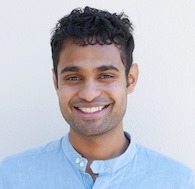 Jose Faleiro is a researcher at Microsoft. He was previously a PhD student at Yale, advised by Daniel Abadi, and a post-doc at UC Berkeley under Joe Hellerstein. He is broadly interested in data management systems, multi-core systems, and distributed systems.
Jose Faleiro is a researcher at Microsoft. He was previously a PhD student at Yale, advised by Daniel Abadi, and a post-doc at UC Berkeley under Joe Hellerstein. He is broadly interested in data management systems, multi-core systems, and distributed systems.
ACM SIGMOD is also pleased to recognize Silu Huang for Honorable Mention for her thesis on "Effective Data Versioning for Collaborative Data Analytics"
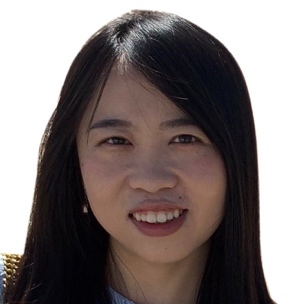 Silu Huang is a researcher in the Data Management, Exploration and Mining (DMX) group at Microsoft Research Redmond Lab. She received her Ph.D. from University of Illinois at Urbana-Champaign (UIUC) in 2019, advised by Aditya Parameswaran. During her PhD, she was awarded with 3M Foundation PhD Fellowship and Microsoft Research PhD Fellowship. Silu's research interest lies in building tools to simplify the whole data science process. In particular, her doctoral research focused on effective data versioning for collaborative data analytics. Her work on OrpheusDB was recognized as best papers of VLDB 2017.
Silu Huang is a researcher in the Data Management, Exploration and Mining (DMX) group at Microsoft Research Redmond Lab. She received her Ph.D. from University of Illinois at Urbana-Champaign (UIUC) in 2019, advised by Aditya Parameswaran. During her PhD, she was awarded with 3M Foundation PhD Fellowship and Microsoft Research PhD Fellowship. Silu's research interest lies in building tools to simplify the whole data science process. In particular, her doctoral research focused on effective data versioning for collaborative data analytics. Her work on OrpheusDB was recognized as best papers of VLDB 2017.
SIGMOD Best Paper Award
Pump Up the Volume: Processing Large Data on GPUs with Fast Interconnects
Clemens Lutz, Sebastian Breß, Steffen Zeuch, Tilmann Rabl, Volker Markl
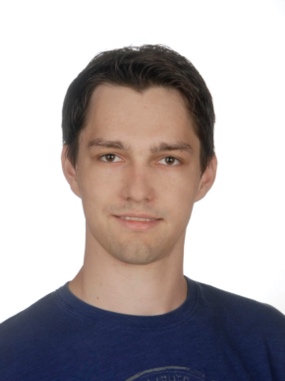 Clemens Lutz is a PhD candidate advised by Volker Markl at TU Berlin. Clemens' research focuses on data management using modern hardware and distributed systems. He is currently investigating how we can apply fast, next-generation interconnects such as NVLink to scale data management on GPUs. Before beginning his PhD in 2015, Clemens received his MSc in Computer Science from ETH Zurich in collaboration with IBM Research, Zurich. He also holds an International Diploma in Computing from Imperial College London.
Clemens Lutz is a PhD candidate advised by Volker Markl at TU Berlin. Clemens' research focuses on data management using modern hardware and distributed systems. He is currently investigating how we can apply fast, next-generation interconnects such as NVLink to scale data management on GPUs. Before beginning his PhD in 2015, Clemens received his MSc in Computer Science from ETH Zurich in collaboration with IBM Research, Zurich. He also holds an International Diploma in Computing from Imperial College London.
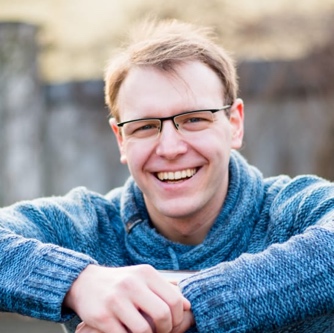 Sebastian Breß is a Software Engineer at Snowflake Inc. and a Postdoctoral Researcher in the DIMA Group of Volker Markl at Technische Universität Berlin. He received his PhD in computer science in 2015 from University of Magdeburg under the supervision of Gunter Saake and Jens Teubner (TU Dortmund). His thesis focused on efficient query processing in co-processor-accelerated databases. In the course of his research, he developed two systems: 1) CoGaDB, a GPU-accelerated column store targeting OLAP workloads and 2) Hawk, a hardware-adaptive query compiler for heterogeneous processor environments (CPUs, GPUs, MICs). His research interests include data management on modern hardware, stream processing, query compilation, and optimizing database systems for heterogeneous processors.
Sebastian Breß is a Software Engineer at Snowflake Inc. and a Postdoctoral Researcher in the DIMA Group of Volker Markl at Technische Universität Berlin. He received his PhD in computer science in 2015 from University of Magdeburg under the supervision of Gunter Saake and Jens Teubner (TU Dortmund). His thesis focused on efficient query processing in co-processor-accelerated databases. In the course of his research, he developed two systems: 1) CoGaDB, a GPU-accelerated column store targeting OLAP workloads and 2) Hawk, a hardware-adaptive query compiler for heterogeneous processor environments (CPUs, GPUs, MICs). His research interests include data management on modern hardware, stream processing, query compilation, and optimizing database systems for heterogeneous processors.
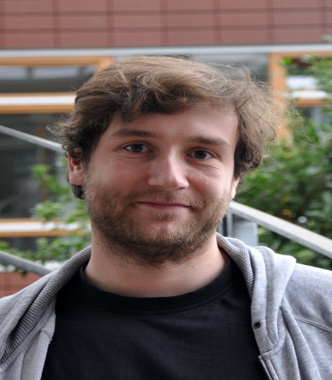 Steffen Zeuch is a Senior Researcher at the DIMA group (TU Berlin) and IAM group (DFKI). He received his Ph.D. in Computer Science at Humboldt University Berlin in the research group of Prof. Freytag. Steffen is conducting research in data management, with an emphasis on topics related to modern hardware, distributed systems, and IoT environments. Currently, he is the project lead of the NebulaStream (www.nebula.stream) project at DIMA, which builds a new data management for the Internet of Things. He has published research papers on query optimization and execution as well as on novel system architectures in many top-tier conferences.
Steffen Zeuch is a Senior Researcher at the DIMA group (TU Berlin) and IAM group (DFKI). He received his Ph.D. in Computer Science at Humboldt University Berlin in the research group of Prof. Freytag. Steffen is conducting research in data management, with an emphasis on topics related to modern hardware, distributed systems, and IoT environments. Currently, he is the project lead of the NebulaStream (www.nebula.stream) project at DIMA, which builds a new data management for the Internet of Things. He has published research papers on query optimization and execution as well as on novel system architectures in many top-tier conferences.
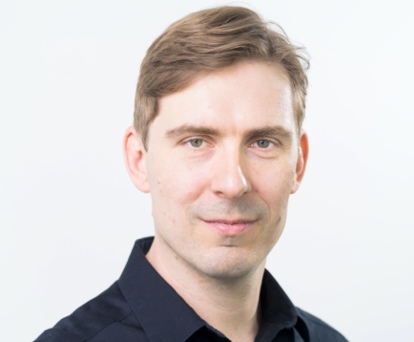 Tilmann Rabl holds the chair for Data Engineering Systems at the Hasso Plattner Institute and is Professor at the Digital Engineering Department of the University of Potsdam. He is also cofounder and scientific director of the startup bankmark. His research interest are in database systems, data processing on modern hardware, stream processing, and benchmarking. He received his PhD at the University of Passau in 2011 and was postdoc at the University of Toronto in the Middleware Systems Group. Before joining HPI, he was visiting professor at the Database Systems and Information Management (DIMA) group at Technische Universität Berlin and Vice Director of the Intelligent Analytics for Massive Data (IAM) Group at the German Research Center for Artificial Intelligence (DFKI).
Tilmann Rabl holds the chair for Data Engineering Systems at the Hasso Plattner Institute and is Professor at the Digital Engineering Department of the University of Potsdam. He is also cofounder and scientific director of the startup bankmark. His research interest are in database systems, data processing on modern hardware, stream processing, and benchmarking. He received his PhD at the University of Passau in 2011 and was postdoc at the University of Toronto in the Middleware Systems Group. Before joining HPI, he was visiting professor at the Database Systems and Information Management (DIMA) group at Technische Universität Berlin and Vice Director of the Intelligent Analytics for Massive Data (IAM) Group at the German Research Center for Artificial Intelligence (DFKI).
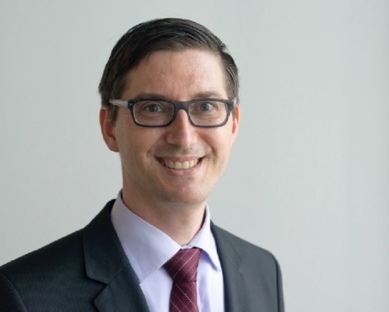 Volker Markl is a Full Professor and Chair of the Database Systems and Information Management (DIMA) Group at the Technische Universität Berlin (TU Berlin). At the German Research Center for Artificial Intelligence (DFKI), he is Chief Scientist and Head of the Intelligent Analytics for Massive Data Research Group. In addition, he is Director of the Berlin Institute for the Foundations of Learnig and Data (BIFOLD), a merger of the Berlin Big Data Center (BBDC) and the Berlin Center for Machine Learning (BZML). Volker Markl is a computer science graduate from Technische Universität München, where he earned his Diplom in 1995 with a thesis on exception handling in programming languages. He earned his PhD in 1999 the area of multidimensional indexing under the supervision of Rudolf Bayer. Volker Markl has published numerous research papers on indexing, query optimization, lightweight information integration, and scalable data processing. He holds 18 patents, has transferred technology into several commercial products, and advises several companies and startups.
Volker Markl is a Full Professor and Chair of the Database Systems and Information Management (DIMA) Group at the Technische Universität Berlin (TU Berlin). At the German Research Center for Artificial Intelligence (DFKI), he is Chief Scientist and Head of the Intelligent Analytics for Massive Data Research Group. In addition, he is Director of the Berlin Institute for the Foundations of Learnig and Data (BIFOLD), a merger of the Berlin Big Data Center (BBDC) and the Berlin Center for Machine Learning (BZML). Volker Markl is a computer science graduate from Technische Universität München, where he earned his Diplom in 1995 with a thesis on exception handling in programming languages. He earned his PhD in 1999 the area of multidimensional indexing under the supervision of Rudolf Bayer. Volker Markl has published numerous research papers on indexing, query optimization, lightweight information integration, and scalable data processing. He holds 18 patents, has transferred technology into several commercial products, and advises several companies and startups.
ShapeSearch: A Flexible and Efficient System for Shape-based Exploration of Trendlines
Tarique Siddiqui, Paul Luh, Zesheng Wang, Karrie Karahalios, Aditya Parameswaran
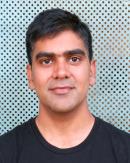 Tarique Siddiqui recently completed his Ph.D. from the University of Illinois at Urbana-Champaign (UIUC), advised by Aditya Parameswaran, His research broadly lies in data management and analytics, with a focus on developing systems for interactive data exploration. He has also been working on learning-based techniques for query optimization in large scale big data warehouses. He is a recipient of the Siebel Scholars Award, and has previously worked at Goldman Sachs after doing his undergraduate at National Institute of Technology in India. Tarique will soon be joining Microsoft Research as a researcher.
Tarique Siddiqui recently completed his Ph.D. from the University of Illinois at Urbana-Champaign (UIUC), advised by Aditya Parameswaran, His research broadly lies in data management and analytics, with a focus on developing systems for interactive data exploration. He has also been working on learning-based techniques for query optimization in large scale big data warehouses. He is a recipient of the Siebel Scholars Award, and has previously worked at Goldman Sachs after doing his undergraduate at National Institute of Technology in India. Tarique will soon be joining Microsoft Research as a researcher.
 Paul Luh recently graduated with a master's degree from the University of Wisconsin-Madison, advised by Professor Theodoros Rekatsinas. He has been working on novel data extraction systems that combine ideas from both machine learning and program synthesis. Prior to his M.S., he completed his B.S. from the University of Illinois at Urbana-Champaign, where he worked with Professor Aditya Parameswaran on interactive data exploration systems. Starting July, Paul will join NVIDIA as a software engineer.
Paul Luh recently graduated with a master's degree from the University of Wisconsin-Madison, advised by Professor Theodoros Rekatsinas. He has been working on novel data extraction systems that combine ideas from both machine learning and program synthesis. Prior to his M.S., he completed his B.S. from the University of Illinois at Urbana-Champaign, where he worked with Professor Aditya Parameswaran on interactive data exploration systems. Starting July, Paul will join NVIDIA as a software engineer.
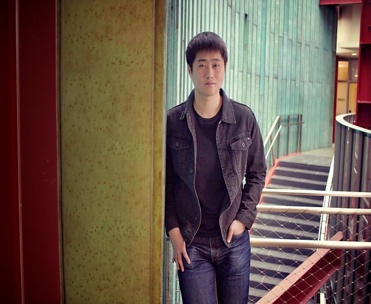 Zesheng Wang is a software engineer at Roblox Corporation. He received his M.S. in Computer Science from the University of Illinois at Urbana-Champaign, advised by Professor Aditya Parameswaran. During his M.S. study, he has been working on interactive data exploration systems with a focus on query execution and optimization. Prior to his M.S., he studied at Jilin University in China for two years before he joined and completed his B.S. in Mathematics at the University of Illinois at Urbana-Champaign.
Zesheng Wang is a software engineer at Roblox Corporation. He received his M.S. in Computer Science from the University of Illinois at Urbana-Champaign, advised by Professor Aditya Parameswaran. During his M.S. study, he has been working on interactive data exploration systems with a focus on query execution and optimization. Prior to his M.S., he studied at Jilin University in China for two years before he joined and completed his B.S. in Mathematics at the University of Illinois at Urbana-Champaign.
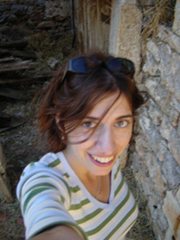 Karrie Karahalios is a Professor in Computer Science and University Scholar at the University of Illinois (UIUC) where she heads the Social Spaces Group. Karahalios completed an S.B. in Electrical Engineering, an M.Eng. in Electrical Engineering and Computer Science, and an S.M. and Ph.D. in Media Arts and Sciences at MIT. Her work focuses on the interaction between people and the social cues they perceive and emit in networked electronic spaces. This is operationalized through the design and analysis of social media systems, the visualization of communication dynamics, The auditing of algorithmic systems, and the creation of assistive technologies for communication in non-lab environments.
Karrie Karahalios is a Professor in Computer Science and University Scholar at the University of Illinois (UIUC) where she heads the Social Spaces Group. Karahalios completed an S.B. in Electrical Engineering, an M.Eng. in Electrical Engineering and Computer Science, and an S.M. and Ph.D. in Media Arts and Sciences at MIT. Her work focuses on the interaction between people and the social cues they perceive and emit in networked electronic spaces. This is operationalized through the design and analysis of social media systems, the visualization of communication dynamics, The auditing of algorithmic systems, and the creation of assistive technologies for communication in non-lab environments.
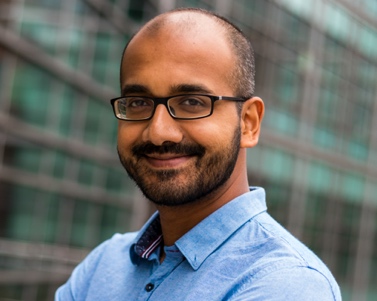 Aditya Parameswaran is an Assistant Professor in the School of Information (I School) and Electrical Engineering and Computer Sciences (EECS) at the University of California, Berkeley. Until June 2019, Aditya was an Assistant Professor in Computer Science at the University of Illinois, Urbana-Champaign. He spent a year as a PostDoc at MIT CSAIL following his Ph.D. at Stanford University. He develops systems and algorithms for "human-in-the-loop" data analytics, synthesizing techniques from database systems, data mining, and human-computer interaction.
Aditya Parameswaran is an Assistant Professor in the School of Information (I School) and Electrical Engineering and Computer Sciences (EECS) at the University of California, Berkeley. Until June 2019, Aditya was an Assistant Professor in Computer Science at the University of Illinois, Urbana-Champaign. He spent a year as a PostDoc at MIT CSAIL following his Ph.D. at Stanford University. He develops systems and algorithms for "human-in-the-loop" data analytics, synthesizing techniques from database systems, data mining, and human-computer interaction.
PODS Alberto Mendelzon Test of Time Award
Optimizing Linear Counting Queries under Differential Privacy
Chao Li, Michael Hay, Vibhor Rastogi, Gerome Miklau, and Andrew McGregor
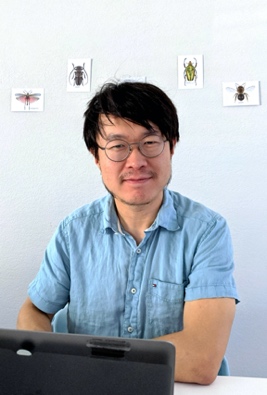 Chao Li currently works at google as an engineer on privacy and storage related projects. Before joining google, he was at UMass Amherst as a Ph.D student, advised by Prof Georme Miklau. His research interests including privacy data collection, access, and sharing, especially with industrial applications; computational validation for differential privacy algorithms; and privacy analysis on machine learning models.
Chao Li currently works at google as an engineer on privacy and storage related projects. Before joining google, he was at UMass Amherst as a Ph.D student, advised by Prof Georme Miklau. His research interests including privacy data collection, access, and sharing, especially with industrial applications; computational validation for differential privacy algorithms; and privacy analysis on machine learning models.
 Michael Hay is an Associate Professor of Computer Science at Colgate University and co-founder of Tumult Labs, a startup that helps organizations safely release data using differential privacy algorithms. His research interests include data privacy, databases, data mining, machine learning, and social network analysis. From 2017-2019, he was a Research Data Scientist at the US Census Bureau. He received Ph.D. from the University of Massachusetts Amherst in 2010 and completed a Computing Innovation Fellowship at Cornell University from 2010-2012. His research is supported by grants from DARPA and NSF.
Michael Hay is an Associate Professor of Computer Science at Colgate University and co-founder of Tumult Labs, a startup that helps organizations safely release data using differential privacy algorithms. His research interests include data privacy, databases, data mining, machine learning, and social network analysis. From 2017-2019, he was a Research Data Scientist at the US Census Bureau. He received Ph.D. from the University of Massachusetts Amherst in 2010 and completed a Computing Innovation Fellowship at Cornell University from 2010-2012. His research is supported by grants from DARPA and NSF.
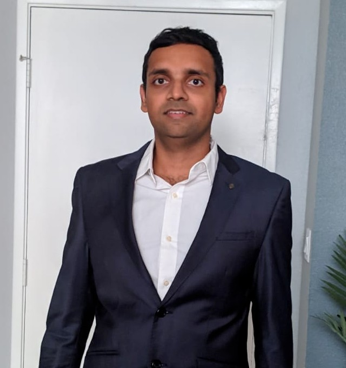 Vibhor Rastogi is a Research Scientist Manager at Facebook where he founded the machine learning team for Messenger ads. The team focuses on connecting people and businesses efficiently and safely via ads and chatbots, while removing harmful actors through AI and NLP. Prior to that, Vibhor has worked on machine learning in ads at Twitter and Google.
Vibhor Rastogi is a Research Scientist Manager at Facebook where he founded the machine learning team for Messenger ads. The team focuses on connecting people and businesses efficiently and safely via ads and chatbots, while removing harmful actors through AI and NLP. Prior to that, Vibhor has worked on machine learning in ads at Twitter and Google.
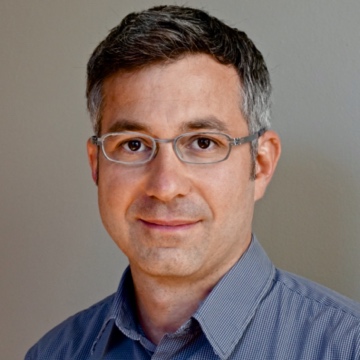 Gerome Miklau is a Professor of Computer Science at the University of Massachusetts, Amherst. His research focuses on private and secure data management. He designs algorithms to accurately learn from data without disclosing sensitive facts about individuals, primarily in the model of differential privacy. He also designs novel techniques for controlling access to data, limiting retention of data, and resisting forensic analysis. He recently co-founded Tumult Labs, a start-up focused on commercializing privacy technology. Prior to that, he consulted for the U.S. Census Bureau on algorithms that will be deployed for the 2020 decennial census.
Gerome Miklau is a Professor of Computer Science at the University of Massachusetts, Amherst. His research focuses on private and secure data management. He designs algorithms to accurately learn from data without disclosing sensitive facts about individuals, primarily in the model of differential privacy. He also designs novel techniques for controlling access to data, limiting retention of data, and resisting forensic analysis. He recently co-founded Tumult Labs, a start-up focused on commercializing privacy technology. Prior to that, he consulted for the U.S. Census Bureau on algorithms that will be deployed for the 2020 decennial census.
Professor Miklau received the Best Paper Award at the International Conference of Database Theory in 2013, the ACM PODS Alberto O. Mendelzon Test-of-Time Award in 2012, a Lilly Teaching Fellowship in 2011, an NSF CAREER Award in 2007, and he won the 2006 ACM SIGMOD Dissertation Award. He received his Ph.D. in Computer Science from the University of Washington in 2005. He earned Bachelor's degrees in Mathematics and in Rhetoric from the University of California, Berkeley, in 1995.
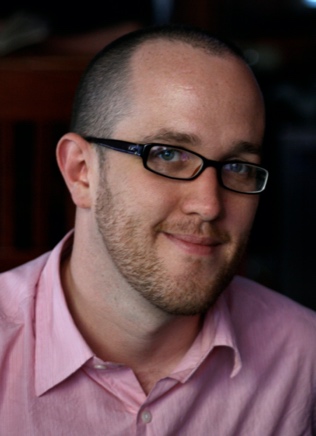 Andrew McGregor is an Associate Professor at the University of Massachusetts, Amherst. He received a B.A. degree and the Certificate of Advance Study in Mathematics from the University of Cambridge and a Ph.D. from the University of Pennsylvania. He also spent a couple of years as a post-doc at UC San Diego and Microsoft Research SVC. He is interested in many areas of theoretical computer science and specializes in data stream algorithms and linear sketching. He received the NSF Career Award in 2010 and the College Outstanding Teacher Award in 2016. He currently directs the UMass TRIPODS Institute on the Theoretical Foundations of Data Science.
Andrew McGregor is an Associate Professor at the University of Massachusetts, Amherst. He received a B.A. degree and the Certificate of Advance Study in Mathematics from the University of Cambridge and a Ph.D. from the University of Pennsylvania. He also spent a couple of years as a post-doc at UC San Diego and Microsoft Research SVC. He is interested in many areas of theoretical computer science and specializes in data stream algorithms and linear sketching. He received the NSF Career Award in 2010 and the College Outstanding Teacher Award in 2016. He currently directs the UMass TRIPODS Institute on the Theoretical Foundations of Data Science.
PODS Best Paper Award
A Framework for Adversarially Robust Streaming Algorithms
Omri Ben-Eliezer, Rajesh Jayaram, David P. Woodruff, and Eylon Yogev
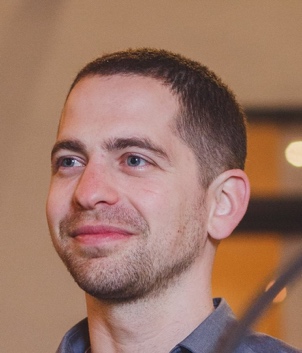 Omri Ben-Eliezer is a PhD student at Tel Aviv University, advised by Noga Alon. His research interests are in the algorithmic foundations of structured data analysis. His works develop efficient algorithms for data with complex structure by studying combinatorial characterizations of the data and how they can be exploited from a statistical perspective.
Omri Ben-Eliezer is a PhD student at Tel Aviv University, advised by Noga Alon. His research interests are in the algorithmic foundations of structured data analysis. His works develop efficient algorithms for data with complex structure by studying combinatorial characterizations of the data and how they can be exploited from a statistical perspective.
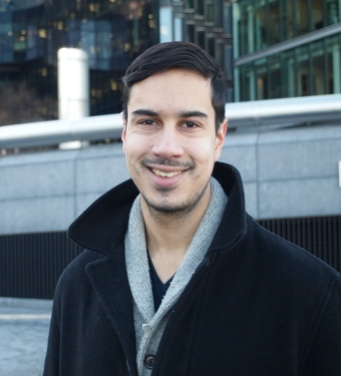 Rajesh Jayaram is a PhD student at Carnegie Mellon University, advised by David Woodruff. Previously, he received his B.S. in Mathematics and Computer Science from Brown University. His research focuses primarily on sublinear algorithms, especially sketching and streaming algorithms for problems in big-data. A large part of his work has been devoted to designing efficient randomized algorithms for problems with database applications, such as his work on the first polynomial time algorithm for approximate counting and sampling from regular languages, which received the PODS Best Paper Award in 2019.
Rajesh Jayaram is a PhD student at Carnegie Mellon University, advised by David Woodruff. Previously, he received his B.S. in Mathematics and Computer Science from Brown University. His research focuses primarily on sublinear algorithms, especially sketching and streaming algorithms for problems in big-data. A large part of his work has been devoted to designing efficient randomized algorithms for problems with database applications, such as his work on the first polynomial time algorithm for approximate counting and sampling from regular languages, which received the PODS Best Paper Award in 2019.
 David Woodruff works on data science topics such as data streams, machine learning, randomized linear algebra, sketching and sparse recovery. He has been an associate professor in the computer science department at Carnegie Mellon University since 2017. Prior to that he was a research scientist at IBM Almaden Research Center for ten years, which he joined after completing his Ph.D. in theoretical computer science at the Massachusetts Institute of Technology. He is the recipient of the 2020 Simons Investigator Award and the 2014 Presburger Award, and previously received Best Paper Awards at STOC 2013 and PODS 2010. At IBM he was a member of the Academy of Technology, a Master Inventor, and received multiple Pat Goldberg Awards.
David Woodruff works on data science topics such as data streams, machine learning, randomized linear algebra, sketching and sparse recovery. He has been an associate professor in the computer science department at Carnegie Mellon University since 2017. Prior to that he was a research scientist at IBM Almaden Research Center for ten years, which he joined after completing his Ph.D. in theoretical computer science at the Massachusetts Institute of Technology. He is the recipient of the 2020 Simons Investigator Award and the 2014 Presburger Award, and previously received Best Paper Awards at STOC 2013 and PODS 2010. At IBM he was a member of the Academy of Technology, a Master Inventor, and received multiple Pat Goldberg Awards.
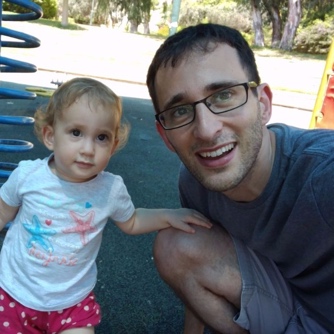 Eylon Yogev is a postdoc affiliated with both Boston University and Tel-Aviv University. He has received his Ph.D. from the Weizmann institute supervised by Prof. Moni Naor. His research interests are in general cryptography and, in particular, in its various relationships with other areas in theoretical computer science. The most prominent examples include complexity, data structures, streaming algorithms, distributed algorithms, and search problems.
Eylon Yogev is a postdoc affiliated with both Boston University and Tel-Aviv University. He has received his Ph.D. from the Weizmann institute supervised by Prof. Moni Naor. His research interests are in general cryptography and, in particular, in its various relationships with other areas in theoretical computer science. The most prominent examples include complexity, data structures, streaming algorithms, distributed algorithms, and search problems.
Reproducibility Awards
- Uncertainty Annotated Databases - A Lightweight Approach for Approximating Certain Answers
Su Feng, Aaron Huber, Boris Glavic, Oliver Kennedy - Raha: A Configuration-Free Error Detection System
Mohammad Mahdavi, Ziawasch Abedjan, Raul Castro Fernandez, Samuel Madden, Mourad Ouzzani, Michael Stonebraker, Nan Tang




